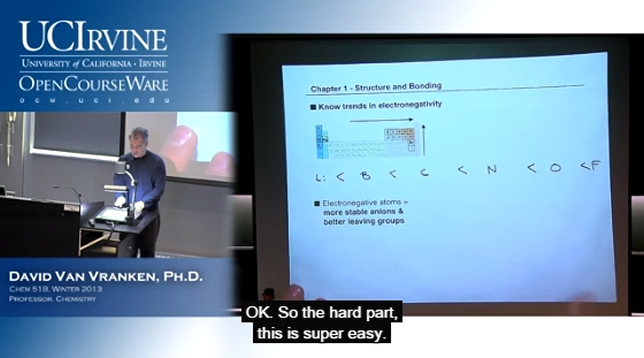UC Irvine Opens Chemistry Lectures Online
- By Dian Schaffhauser
- 03/10/15
The University of California, Irvine has kicked off an "Open Chemistry" project that makes lectures from 16 separate undergraduate and graduate courses freely available online.
Intended for use specifically by other public educational institutions within the state, in reality OpenChem's lessons are open to anybody who wishes to watch them. Each lecture is captioned, and many include assignments for students to complete if they have the proper textbook or ancillary course materials.

"The flexibility of OpenChem is that it permits adoption at many different levels: remediation for students prior to entering general chemistry studies, supplemental studies for advanced high school and undergraduate students, and concurrent support for chemistry majors throughout their undergraduate years," according to Larry Cooperman, associate dean for open education and president of the 300-member global Open Education Consortium.
The school is also working on collaboration with other open educational resources, such as UC Davis' ChemWiki dynamic textbook. Currently, students who want to partake of the homework assignments for the Irvine courses must acquire copies of the curriculum used by the lecturers.
The program is the latest initiative launched as part of a statewide push to develop open education resources. In 2014 California's community colleges introduced the Online Education Initiative to "make good on the promise of universal access to higher education," as one statement put it at the time.
The captioning of the chemistry courses was handled through a grant provided to the community colleges to ensure that the content is accessible to all students, including those with disabilities.
About the Author
Dian Schaffhauser is a former senior contributing editor for 1105 Media's education publications THE Journal, Campus Technology and Spaces4Learning.